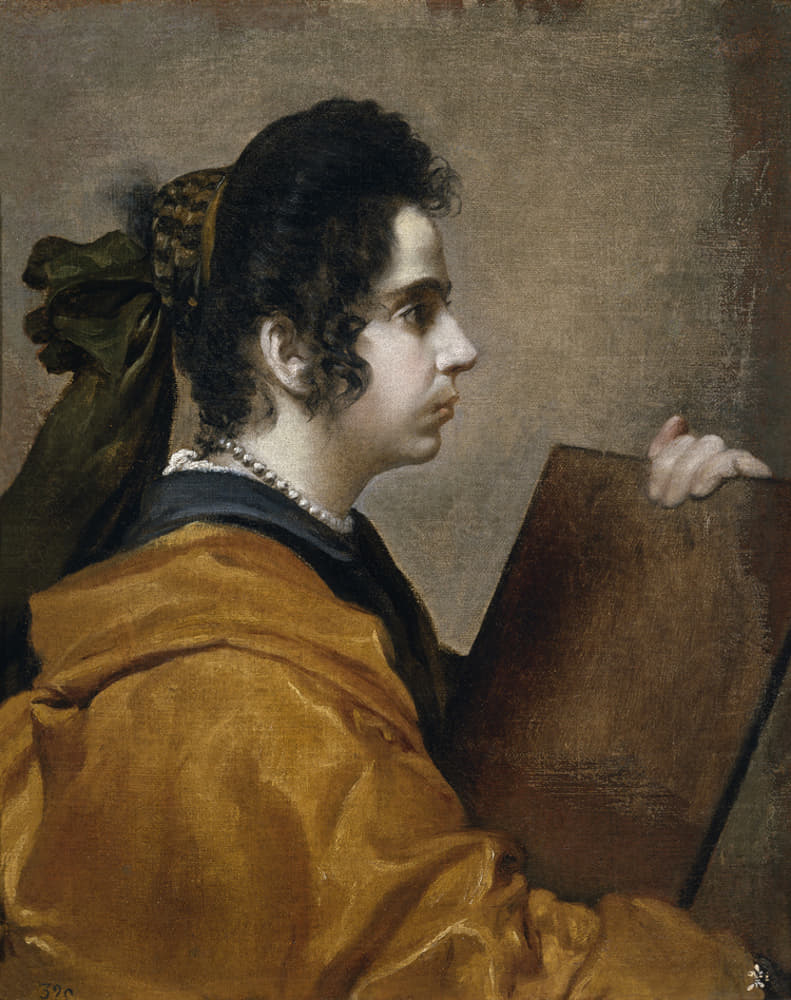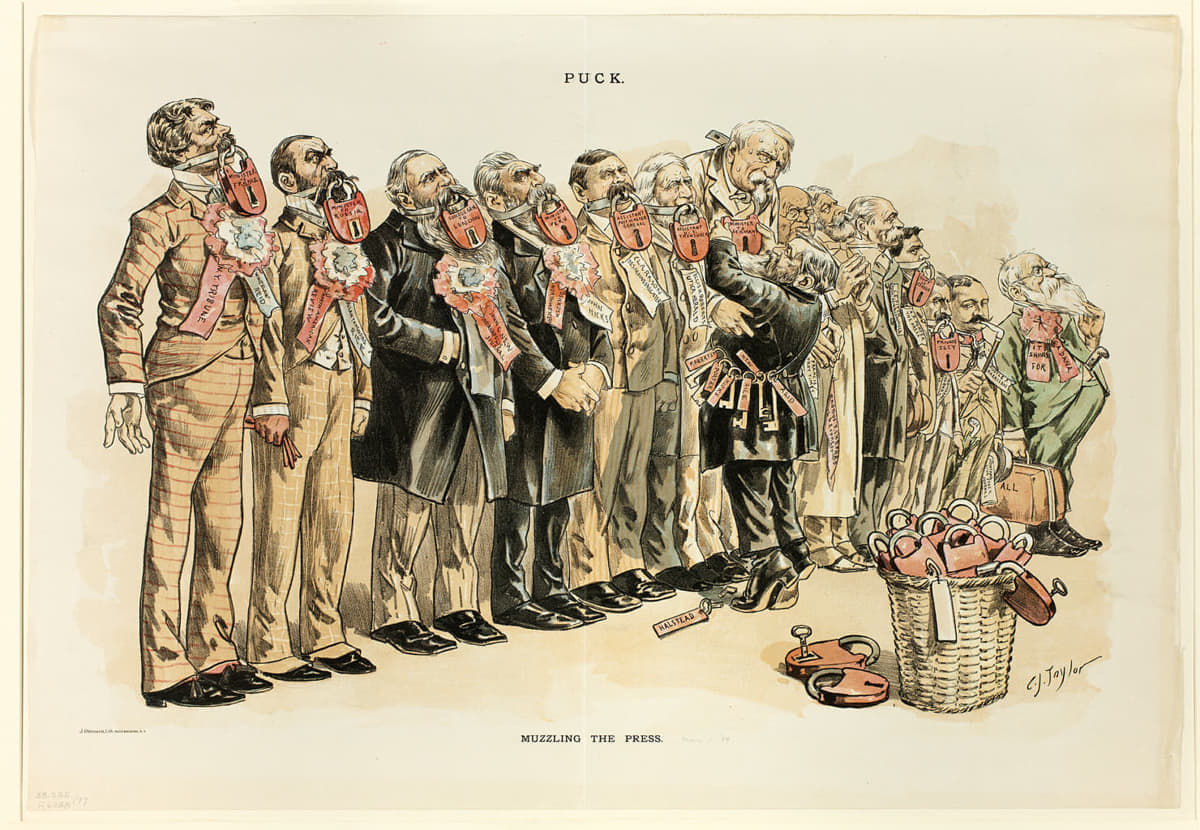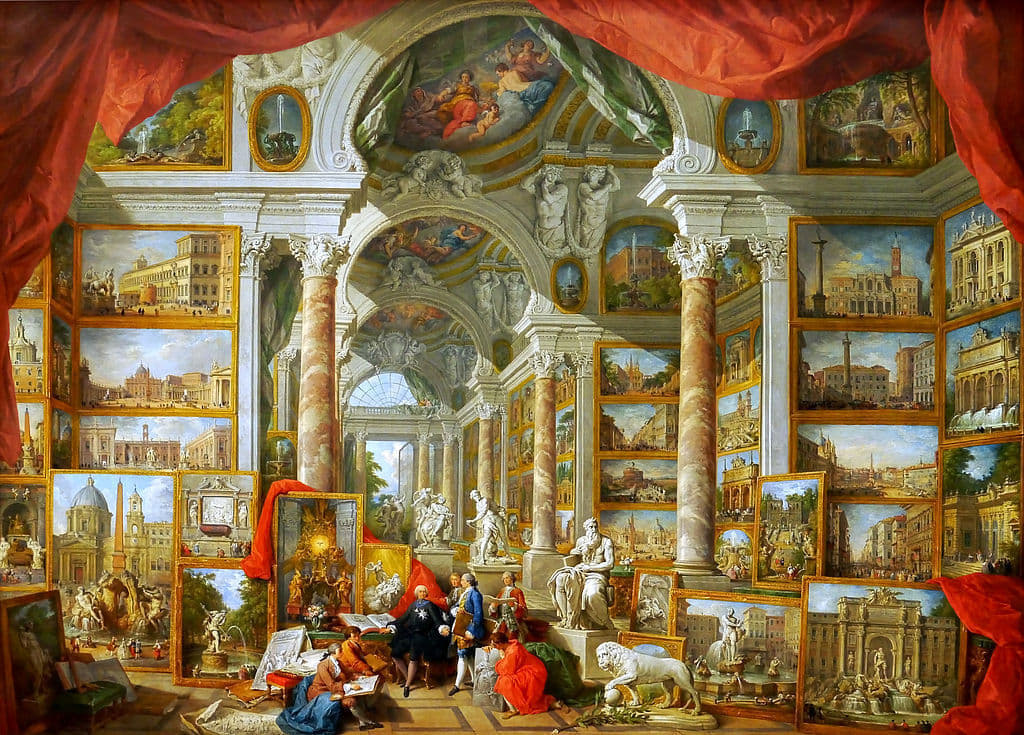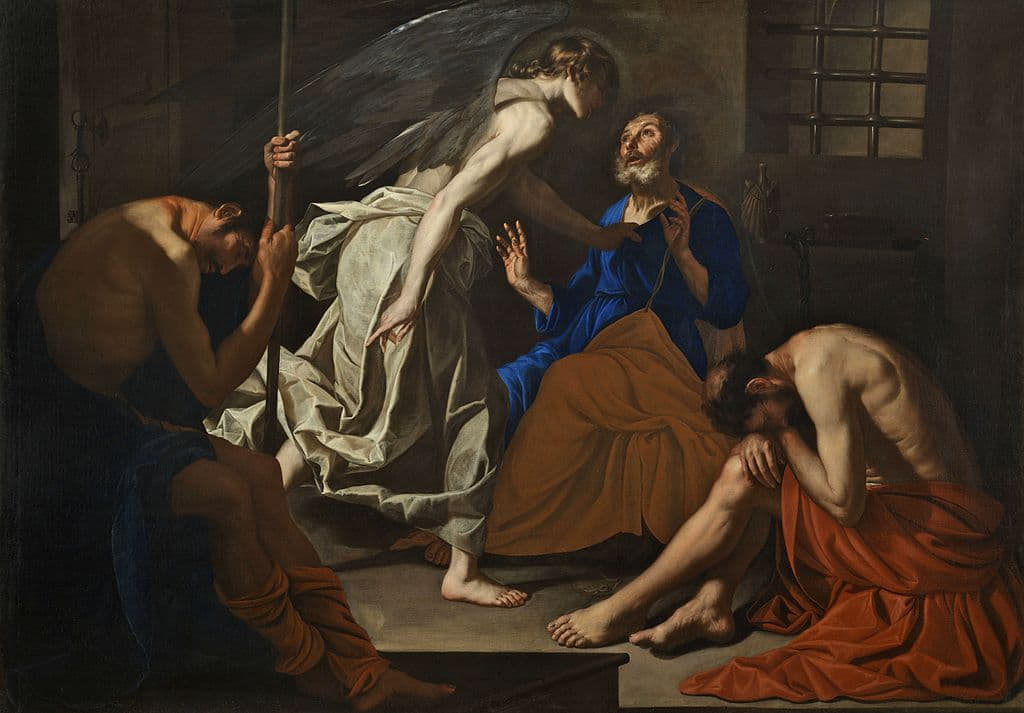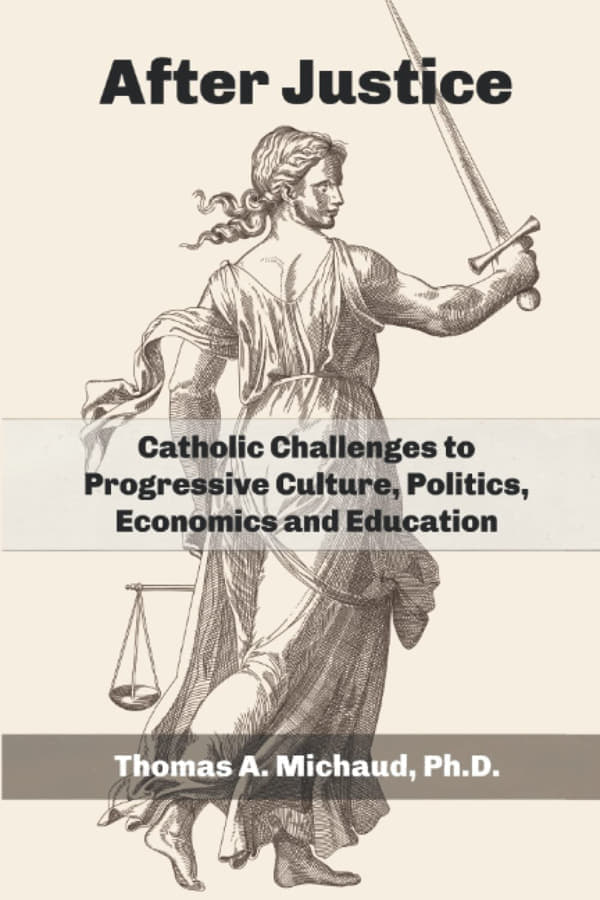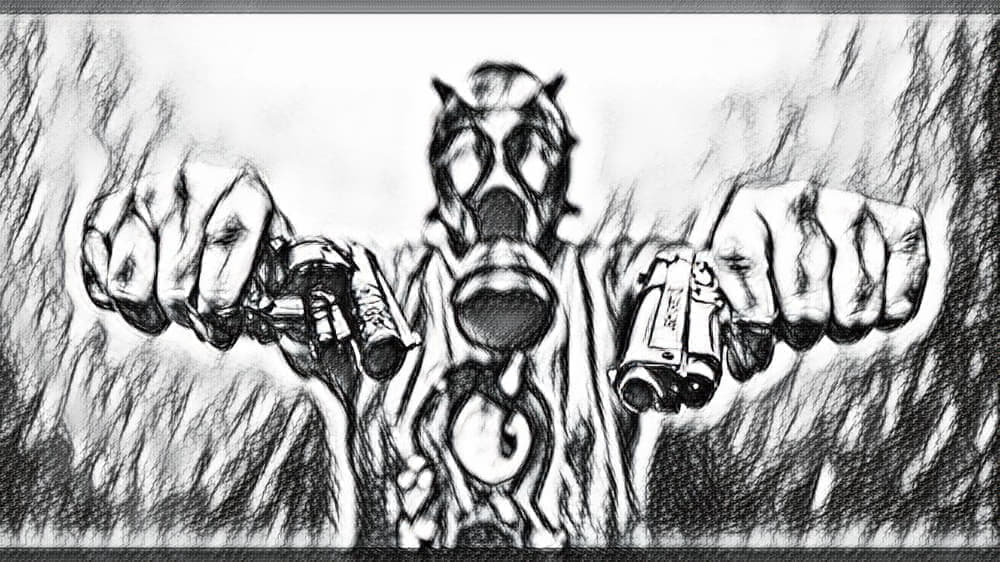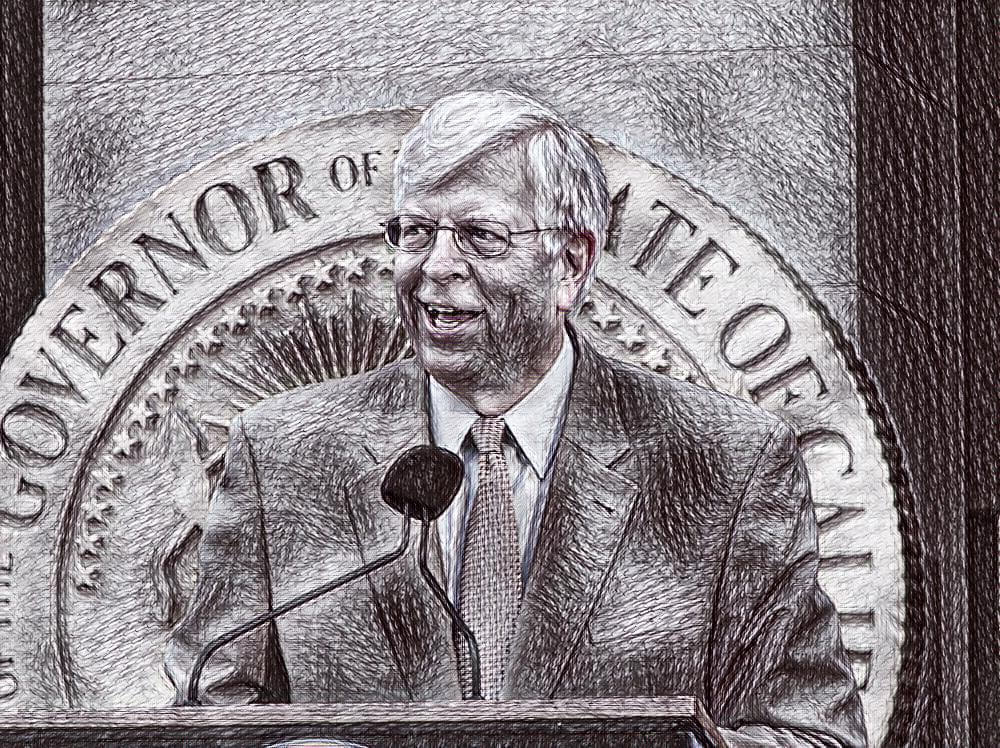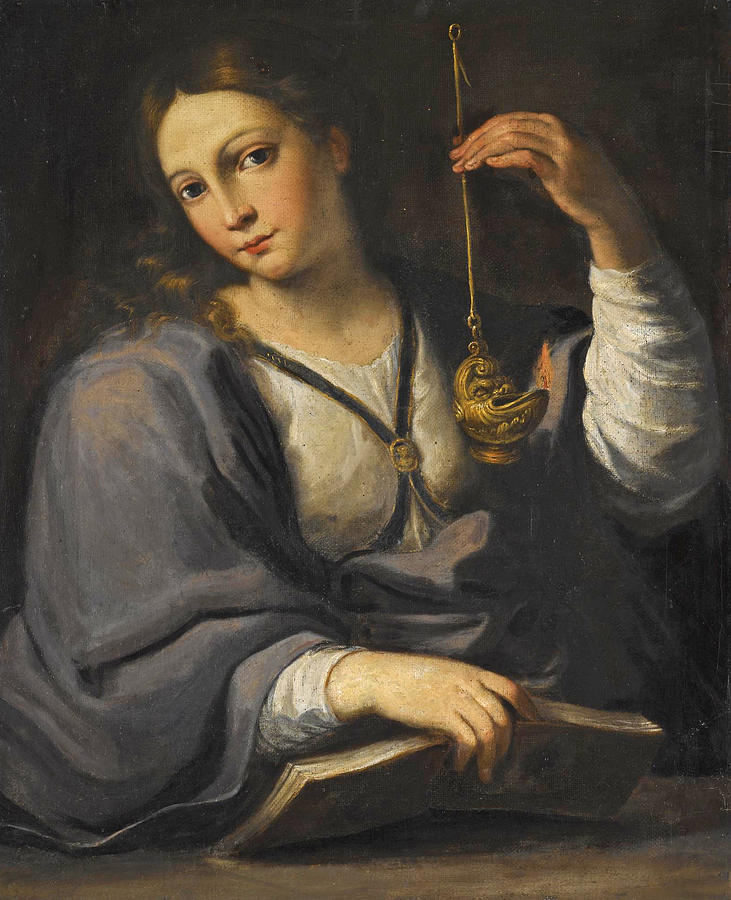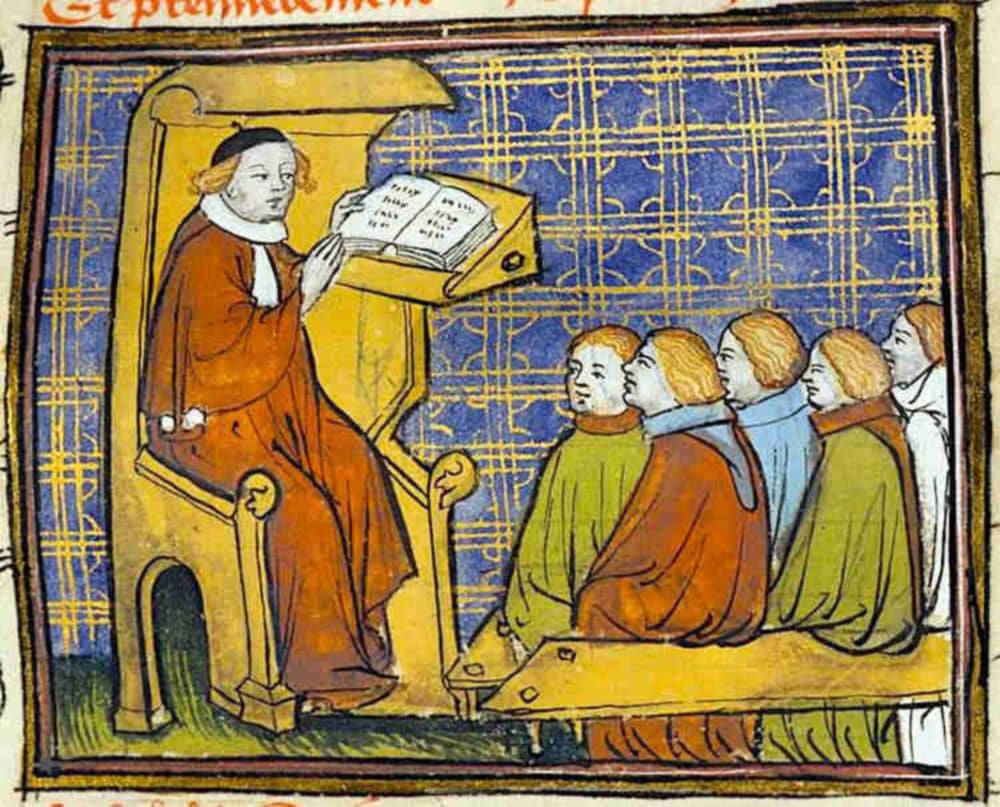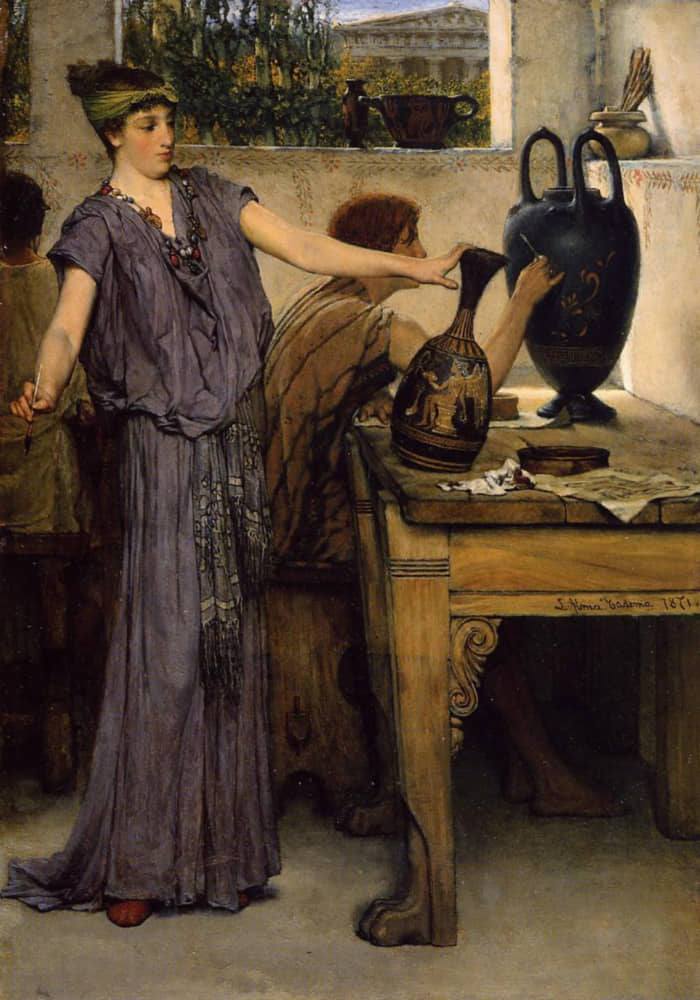Once or twice a year, I make the long journey to East Asia in order to reinvigorate my optimism about humanity in general and the possibilities for the United States in particular. Visiting partner universities in South Korea, Thailand, and Vietnam, and interacting with students and faculty from this ambitious region is like stepping back into what I imagine post-war America was like. The universities are hubs for innovation and social leadership that are making life markedly better for the average person.
Not a day goes by when my local colleagues are not in the field helping political, economic, and social actors do better. Whether its cybersecurity, heritage management, youth leadership, digital infrastructure, or urban planning, I find myself stepping into a world apart from the resentful and risk-averse America that I leave behind. I once travelled here while my home university’s “diversity” bureaucracy was investigating me for a litany of made-up complaints that students had concocted to get me fired for being a conservative. Somehow, even that great evil melted into nothingness once I was alongside my serious colleagues in Asia. “Who cares what’s happening in the U.S.?” I recall thinking. “At least there’s one part of the world where the promise of the university is still on vivid display.”
I take universities to be a good litmus test of the health and values of a society. When well-managed, they both produce and reflect the best, when ill-managed, the worst. That is why groups like the National Association of Scholars (NAS), the conservative research and advocacy group of which I am a board member, have come into the spotlight recently. The values of a country are preserved, restored, and redeemed at the university. So its health is of more than nugatory significance. The destructive capture of the university by radicals that was dismissed as mere campus follies in the 1970s is today lodged firmly in our social, political, and economic institutions. Universities in America today not just export but also reinforce everything that is wrong with our republic. Rebuilding universities is the key to rebuilding public intellectual life, and with it American values.
My annual pilgrimage to Asia tells me that the pessimistic “burn it all down” sentiment filled with enmity, doom, and despair underestimates the possibilities of positive change in America. In particular, I see anew in the countries of East Asia (Northeast and Southeast Asia from Japan to Indonesia) how the three fundamental forces that made the West and its universities great – the free market, science and technology, and Western culture – can overcome the ideological cancer that has driven us to rancor and entitlement. These forces, which the NAS embraces in its stated mission to “foster intellectual freedom, search for the truth, and promote virtuous citizenship”, show where the work is to be done and how the future may be brighter than we think. I still find myself surprised by joy at the possibility that the American university and the broader public sphere can be rebuilt with inspiration from Asia.
I lived in Asia for over a decade and have been there often since. I do not exoticize or romanticize the region. Its problems are a mirror image of ours: a prevalence of rote and repetition in learning, a tendency to idolize science such that methods overtake substance, and a persistent authoritarian streak that makes universities dangerously vulnerable to bad decisions. But in the main, I see Asia overcoming its weaknesses and building on its strengths far more than we in the West. “Stand to your work and be wise – certain of sword and pen,” Kipling wrote, rallying England to the challenge of Asia. “Who are neither children nor Gods, but men in a world of men.”
Freedom and Markets
Capitalism is the necessary institution of human flourishing, and don’t let any screaming Swedish teenager or muddled Argentinian pontiff tell you otherwise. Not just economic flourishing, mind you. That one is obvious. Political, social, and even environmental flourishing depend on free markets as well. We can debate how to keep the market aligned with the public good. But nothing can ever replace it as an engine of human betterment.
When Marxists began populating the academy in the 1960s, it was thought to be merely a widening of the intellectual circle. After all, neo-classicists, libertarians, conservatives, socialists, and social welfarists already existed on campus. Adding Marxists to the mix was expected to improve the contention. But by the 2000s, the radical march through the institutions had left on campus only the Marxists, including a new brand of post-Marxists obsessed with the cultural means of production. They claimed that their triumph reflected the progress of history. Capitalism was in its death throes (“late capitalism” was the term of abuse) as was European culture (disparaged as “neo-colonialism”) and universities needed to prepare for a future based on New Socialist Man. Amazingly, the collapse of socialist regimes in Europe had little effect on the campus mindset because the radicals told themselves that this collapse was a result of American Cold War hostility rather than popular preferences.
Communist regimes in China and Vietnam knew better. They survived by embracing markets without political freedom. Socialist parties continued to wreak havoc in Latin America, where socialist norms remain resilient and are remaking the American republic as a result of uncontrolled immigration. Africa remained fundamentally uninstitutionalized and thus an evergreen model for socialist utopias. It is no coincidence that market freedoms coincided with the rise of top universities in China, and now Vietnam, while traditional top universities in the West declined.
This complacent story meant that in the 1990s, rather than waking up to the dawning reality of global competition, the Western academy went into a tailspin. It invented new attacks on the market using jargon about “neo-liberalism” and “racialized inequality.” The spillover effects on society were catastrophic.
Markets are a way of organizing societies as much as economies. They put a moral value on self-control, planning, prudence, hard work, thrift, and responsibility. The attack on markets was an attack on these “bourgeois values”, as my colleague at the University of Pennsylvania, Amy Wax, famously called them. The abandonment of these values by wide swathes of American society was a direct consequence of the Marxist capture of the university.
What are the grounds for hope? Like China and Vietnam before us, societies that flirt with a state takeover of national life, whether through expropriation, regulation, or taxation, quickly learn the costs. When President Trump declared in his 2019 State of the Union that “America will never be a socialist country” it was a winning appeal. His Council of Economic advisors in 2018 had issued a report on “The Opportunity Costs of Socialism” that pointed to rising socialist sentiments on the left. A “socialist program for the U.S.,” it noted, “would make shortages, or otherwise degrade quality, of whatever product or service is put under a public monopoly. The pace of innovation would slow, and living standards generally would be lower.”
The report worried about potential socialized medicine or confiscatory personal and corporate taxes. But socialism had already come to the university. The innovation and ambition that characterized American colleges and universities in the post-war era was destroyed by entitled faculty unions, radical bureaucrats, and the use of federal subsidies to socialize campus management.
The problem was not the absence of “intellectual freedom” as many of my colleagues on the right insist. The lesson of the Cold War was that intellectual freedom was inseparable from market freedom. The claim that we just needed to inject some conservatives and classical liberals into campus like artificial insemination was a myth. Rather, it was the growing capture of institutions of higher education by federally-funded radicals that was the problem.
The lack of intellectual freedom and pluralism is today endogenous to the American university. The Marxist socialization of higher education – not just the funding but the use of the funding to impose all manner of federal and state regulations as well as ideological mandates – is the problem. Any freedom injected into this setting will be punished and expelled, like the hapless peasants who tried to keep kitchen gardens in Mao’s China. That’s why “cancel culture” is wholly unsurprising, and frankly irrelevant.
Intellectual freedom and pluralism will be restored only once the fetters of Marxist control are removed. Then, we will get a rebalancing of perspectives on campus. If universities cannot be radically marketized, then much of their research should be pulled out of them and into standalone institutions. This would allow universities to divide their units into standalone profit centers not dependent on the cross-subsidization of gender studies and sociology departments. Deadweight costs emanating from DEI bureaucracies and mandates would be saved. New schools and colleges offering job-relevant skills and services to society would proliferate, while liberal arts colleges would thrive only if they actually taught the liberal arts.
My host institution in Thailand, the College of Local Administration at Khon Kaen University, is a standalone profit center that has to pay rent on its land and overhead costs to the university. As a result, it is a dynamo of teaching and public outreach, and its enrollment is surging. It cannot afford ideological follies. The only “inequality” of concern in Asia is an inequality of opportunities for individuals to be absolutely better off than their parents. With broad economic growth and value-adding educational systems, this concern is close to non-existent.
I have seen the future, and it is neo-liberal. It is also rife with inequalities of the best sorts. And I see an eventual awakening from state planning in American public life that will usher in this change. In this American future, students will again be the masters of their souls, not the slaves of campus ideologues. They will be directed to their own behavior and contributions, not to “grand narratives” about victimization and powerlessness fed to them by socialist planners. They will take initiative, add value, see opportunities, and make positive changes. That’s what I see at Asian universities, and that’s the first way that the socialist pandemic will be defeated in the American public sphere.
Science and Truth
The creation of markets was not the only key event in the rise of the West. The other was more breathtaking because it had no antecedents in folk cultures or primitive societies. This was the discovery of a conception of disembodied, impersonal, and non-contingent truths that an individual could discover, and then follow. Science was a formalization of this shift. It took place in Medieval Europe with the discovery of the individual as freed from social determinism, governed only by the immutable laws and love of a transcendent God. The belief that humans resemble God by virtue of being conscious of themselves and able to understand and know things about the world around them remains the irrevocable religious foundation on which all modern science is based.
So widespread did the basic tenets of science become – measurable concepts, disprovable theories, logical justification, openness to new evidence, etc. – that even the study of human societies was made scientific. The “social sciences” achieved its greatest breakthroughs from roughly the mid-19th to mid-20th centuries. While academic philosophers today with no knowledge of the actual practices and evidence of the social sciences dismiss the possibility of relatively dependable laws of society, much of our contemporary world is based on such laws. The Federal Reserve is raising interest rates to combat inflation because we know a thing or two about how humans respond to borrowing costs. When you file your underpaid taxes this year, the IRS will suggest planning better for next year because we know a thing or two about human psychology. I could go on.
Despite the obvious fruits of the scientific method for both natural and social understanding, the academy experienced another dysphoria beginning in the 1970s, and another march through the institutions by the confused. The pilgrims this time were not the Marxists advocating communal planning of society and the socialist road in order to overcome the oppression of “the system.” These radicals had after all insisted that they were following “scientific socialism.” The parvenus were more nearly in direct opposition to them, insisting that all knowledge claims were mere individual beliefs, hopelessly subjective. In place of campus as a place of liberation, we got campus as a place of irony. These postmodernists of various stripes saw their mission as rescuing students from the paradigms and grand narratives that had been created by the rich, the powerful, and (latterly) the white.
The cracks that allowed this fungus to infect the tree of knowledge had been made by the scientists themselves. The British philosopher Walter Gallie wrote a seminal article in 1956 on how social concepts like “democracy” changed their meaning over time because of their “appraisive” nature. But he rejected that view that there was no logic in human affairs. To fall into a “new obscurantism” was to lurch from the mistake of Marxist universalism to that of postmodern relativism, he warned. “Since the Enlightenment a number of brilliant thinkers seem positively to have exulted in emphasizing the irrational elements in our thinking,” he noted.
Another scientist working on the social aspects of the search for truth, American philosopher Thomas Kuhn, warned in his monumental 1962 book on progress and setbacks in science that his work should not be used to advance a lazy slide into relativism. If anything, he argued, the social sciences made more progress than the sciences because “there are always competing schools, each of which constantly questions the very foundations of the others.”
Too late. Postmodernists seized on Gallie and Kuhn to argue that all knowledge is relative and political. The diligent work of scientists and social scientists ended up producing a cadre of smug and cynical professors whose march through the institutions slightly displaced the Marxists who had marched before them. The “deep concord” of faith and reason, as the national treasure Alvin Platinga, a Notre Dame philosopher called it, was pushed aside by the “superficial concord” of a new belief in atheistic naturalism and a human reason now untethered from any claims to transcendent validity.
Truth was now tumbling along the shifting sands of social justice. Scientific claims were disparaged by the Marxists if they did not comport with social justice, and by the postmodernists if they took a dislike to the skin pigmentation or genitalia of the claim-maker. This did not start in the gender, queer, black, native, and Chicano departments. These intellectual wastelands were an effect not a cause. Rather, it started in the core liberal arts departments: sociology, anthropology, philosophy, and history. Now it is mainstream and weather-proofed against the cold winds of rational debate.
Post-truth academics could now be only two flavors: atheist Marxists fighting for the lumpen proletariat; or cynical doges of “diversity” fighting for epistemologically victimized. The flagship research university in my home state of Oregon has for the past two years forced all incoming undergraduates to read a counter-Enlightenment manifesto named Braiding Sweetgrass. In it, a SUNY botanist who claims native ancestry, Robin Kimmerer, tells students to learn to talk to plants and that “Western” science has obliterated brilliant native insights. The Dave Barry codicil requires constant refrain: “I’m not making this up.”
The attack on science necessitated an attack on free speech, or to be more particular, speech that questioned the nostrums of Marxist social justice, intersectionality, postmodern flightiness, or the evils of the West. This was dressed up as “inclusiveness” and “diversity” and, lately, “anti-racism”, but it all meant the same thing: Don’t subject our post-truth agenda to your contest of ideas.
The COVID pandemic provided a stark reminder of the costs. Cut off from social pressures of the sort that Kuhn applauded, the scientific establishment proved a menace to society as great as the Marxist regimes of the past. But an equal and opposite menace came from the postmodern conspiracy theorists and quacks for whom all scientific claims were a narrative intended to attain power. A delicious irony was the fact that the political left, forced to choose, opted for Marx over Foucault, the all-powerful centralizing state imposing the dictatorship of the vaccinariat on the people. It was the political right, especially the libertarian right, that embraced the worst of Foucault. All public policies were intended to “discipline and punish”, and the public health system was no better than a lunatic asylum. The American campus is what laid the groundwork for both.
Over in Asia, meanwhile, universities have been running on high-octane science with tremendous results. Neither cynical about science nor insisting that it serve social justice, they have allowed it to play its apt role. When I explain to my colleagues in Asia what has been going on in the United States, they stare blank-faced, mouths hanging. Then a nervous laugh. And again: “Who cares? It makes it easier for us to emerge on top.”
And Godspeed them. Those of us who travel in the region for business, research, or government know how fabulously committed our colleagues in Asia are to evidence-based advance. In a word, to science, broadly understood as the quest to discover and live by the truths of His dominion.
To be sure, there are militant feminists and obscurantists in Asia too, mostly trained in the West and going on about queering this and decolonizing that. They are oddballs in Asian academic departments, looked upon with pity and never likely to have any influence on society.
Can it change? My hope lies in the fact that America is the place where faith has not yet been defeated despite the best efforts of European intellectuals. It enrages the American academy how American society stubbornly refuses to conform to European norms that encourage fatherless births, a lack of marriage, the obliteration of religious belief, and sheep like dependence on state-run medicine, education, and media. Because of these twin impulses — the market-led free society and the pervasive refusal to give up on the idea of transcendent Truth — American remains the last best hope in the West as a gathering place for scientific excellence.
A few centers of excellence have even escaped from the treason of the intellectuals, showing that the left has failed to snuff out the light of science and truth. Caltech, for instance, remains a miracle of excellence and meritocracy, especially given its location. Its ranking has never fallen. There are efforts in many Republican-controlled states to remove research funding from universities that impose Marxist or postmodern ideologies on students and faculty, especially via DEI mandates. Rebel bases like Bluefield State University in West Virginia and its self-described “campus maverick” president Robin Capehart keep appearing. More will come.
Like the belief in truths that survived the Communist propaganda in Soviet and Maoist days, the curiosity, humility, and long game of the truth-seeking mind cannot be destroyed. We’d better get a move on. Asian research on all things – science, business, social science, technology, engineering, medicine, etc. – is moving ahead faster than we know.
Virtue and the West
The first line of the old Thai constitution used to read: “Let there be virtue.” The current version repeats the phrase in eight different places, always referring to the teachings of Lord Buddha. Asia today is the only region of the world where ritualized acts of virtue grounded in dominant cultures continue to be a part of everyday living. This in turn permeates into strong social norms of conduct. Ritualized notions of respect, kindness, and accountability permeate campus. Students do not send emails of the sort I receive every day that begin “Hey Bruce”. Professors do not show up in the classroom in jeans and t-shirts and then tell the students about their failed marriages. Religion and the majority culture are integrated seamlessly into campus life from Hokkaido to Bali.
That word “integration” has taken on new urgency as Western countries have begun to disintegrate under the anti-cultural forces of Marxism (“Culture is false consciousness.”) and postmodernism (“Culture is oppressive.”). This disintegrating turn has been fueled by an influx of migrants from outside the West whose cultures are distinctive enough and persistent enough to represent enduring poles of non-majority culture that are slowly erasing, both statistically and conceptually, what the ghoulish like to call “white culture.”
The strategy of political parties of the left is to bide time and run out the demographic clock. European peoples are not having babies, and non-Europeans ones are migrating en masse. They just want safety and “the system” as it is and will put up with a little herding by plantation managers since it is still infinitely better than what they left behind. Pick off a few segments of white culture, especially college-educated women with no children, and you have an enduring coalition indifferent or hostile to the values of the West.
The result is that public rituals on campus, and increasingly beyond, are no longer centered on dominant Western culture, but are instead attacks on it. Land acknowledgements, pronoun declarations, architectural removals and renamings, BIPOC-only events, hostile “whiteness” studies, and “decolonizing” movements have turned culture into anti-culture.
Under those circumstances, how can it be possible to advance the third NAS principle, namely the promotion of “virtuous citizenship?” How, in other words, can universities and broader cultural institutions define and promote a concept of citizenship grounded in a shared conception of virtue when the virtues at stake, which have drawn billions of migrants to the West, are now the target of systemic erasure?
This is perhaps the knottiest challenge of the three because it is where conservatives must beg leave of their classical liberal, libertarian, and otherwise free-thinking colleagues. Like new migrants, these brethren often take the cultural basis of a free society for granted. They want all the West’s rule of law, stable politics, wide freedoms, flourishing market economy, and social trust without any of its cultural foundations. Indeed, new migrants are often more keenly aware of the precious cultural heritage of the West than these unsociable anchorites, whether leftist eco-warriors or rightist militiamen.
The virtue generated through culture comes of a humility of checking one’s egotistical impulses, impulses now given high voltage by digital technologies. The NAS may applaud the work of fellow-travelling iconoclasts who make fun of the Woke academy. But atheism, hyper individualism, and ego are often their bywords. The American republic, and the public square that animates it, can never be retaken by individuals obsessed with their Tik Tok views.
The source of the virtues of the West is its culture and traditions. This means the inherited practices, habits, and systems that have worked well. With apologies to Monty Python, strange women lying in ponds distributing swords — like strange men lying in the Pennsylvania State House distributing two senate seats per state — is precisely the basis for a system of government. But preserving that system requires constant reverence for and delight in the uniquely Western culture that produced it.
So who or what is the “Lord Buddha” to which we must bend the knee in silent reverence? In a word, the Western canon: the precious ethical, literary, artistic, philosophical, theological, historical, and architectural accretion that layered Greek, Jewish, Roman, Catholic, Protestant, and finally Enlightenment cultures one on top of the other. Each country then bit off a particular morsel – for the United States it came ashore in 1620 with the powerful idealism of the New England Puritans – on which to craft its national virtue.
Calling this “white culture” is shorthand at best. Whatever the later associations of the West with the more fair-skinned and small-featured peoples of northern Europe, the origins lie in the Near East and Mediterranean. The bride of the Song of Songs is “black but comely” due to long days in the vineyard sun. And, not to be mistaken for an insult, the bridegroom sings to her: “Your nose, the Tower of Lebanon.”
More important, it is the uniquely universal accessibility of Western culture that makes it so powerful. Black Americans may opt out of American society into delusions of African grandeur and brilliance. Native Americans may likewise dwell in dreams of some lost cultural paradise wiped out by the white man. The South Asian radicals rapidly rising into power on the left may equally style themselves as bearers of some Hindoo moral mandala needed to save the West. But two things bear repeating. One is that although the left can pick off some key demographics of the white population, the right will have much more potential picking off key demographics of the non-white population. After all, the right’s message is not based on fear and condescension. It is based on colorblind Western universalism. Some of the most passionate and articulate voices in support of American greatness and Western values are no longer white (a return to historical form, so to speak). Let me sing the praises of the “black but comely” Carol Swain, senior fellow for constitutional studies at the Texas Public Policy Foundation. Allow me to compliment Conservative British prime minister Rishi Sunak, his nose “the Tower of Lebanon.” Dare I further invoke the Song of Songs in adoration of the freedom-loving essayist and activist Wenyuan Wu, her hair “black as a raven”?
Second, white groups are remarkably resilient. WASPs are not going away and have no intention of giving up their uniquely important role in the preservation of American freedoms. Nor, for that matter, are white Catholics, European Jews, Appalachian crooners, Minnesota Nordics, Wyoming cowboys, Pennsylvania Germans, and red-headed Scots-Irish. In the face of an elite culture emanating from Hollywood and Madison Avenue that has sought an erasure of white culture, it just keeps going. Try to black-wash the Lord of the Rings, a parable of medieval Europe, or the novels of Jane Austen and you will fall on your face.
The “virtuous citizenship” practiced in Asia through everyday ritualized reminders and ongoing education in dominant cultures is a model for Western countries, and the United States in particular. Begin the day with the Pledge of Allegiance. Decorate your public spaces with images of Lincoln, Jefferson, Washington. Teach Magna Carta and the Puritan sermons. Read widely from Homer to Hamilton. Do all that and along the way, take time to notice and delight in the variety of peoples from many cultural backgrounds who stand on the frontlines whistling “The Battle of the Kegs.”
We thus might amend slightly the NAS slogan—“For reasoned scholarship in a free society”—to make it less eloquent but more precise: “For reasoned scholarship in a free and Western society.” A simple formula that packs a punch. Swords and pens, gentlemen. Stand to your work and be wise.
A native of Calgary and a graduate of Trinity College, Oxford and Princeton, Bruce Gilley is professor of political science at Portland State University. His latest books are In Defense of German Colonialism and The Last Imperialist. Sir Alan Burns’ Epic Defense Of The British Empire.
Featured: Gallery of Views of Modern Rome, by Giovanni Paolo Panini; painted in 1759.
